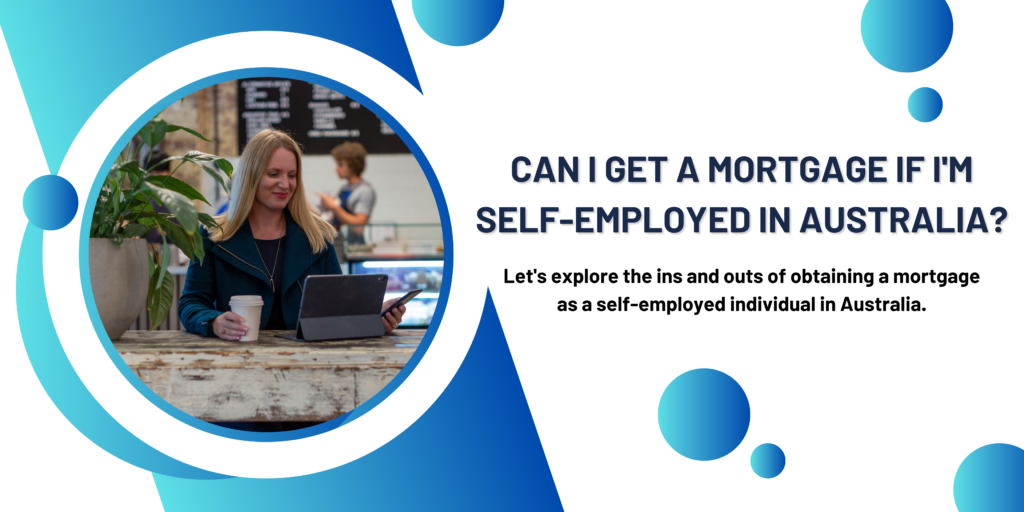For many self-employed Australians, you’re told that the dream of home ownership will be extremely difficult making it more daunting. However, with the right knowledge and from 12 months to two years of preparation means securing a home loan is entirely possible. Let’s explore the ins and outs of obtaining a mortgage as a self-employed individual in Australia.

Understanding Self-Employed Mortgages in Australia
You’ll know if you’re self-employed but just to be clear, to be considered self-employed you’ll have been called a sole trader, company director, contractor, gig economy worker, partner at a company, etc. While self-employment offers flexibility and independence, it can complicate the mortgage application process due to potentially variable income and unique tax situations.
Types of Self-Employed Individuals in Australia
- Sole Traders: Operating under an individual’s name with an Australian Business Number (ABN).
- Company Directors and Shareholders: Running a proprietary limited (Pty Ltd) or public company.
- Contractors and Consultants: Working on a contract basis in industries like IT, construction, or mining.
- Gig Economy Workers: Participating in platforms like Uber, Deliveroo, or Airtasker.
Mortgage Options for Self-Employed Individuals
- Standard Home Loans: Offered by lenders, these require comprehensive documentation, usually over two years of evidence proving your success.
- Low Doc Loans: Designed for self-employed borrowers with less documentation, but often with higher interest rates.
- Specialist Lenders: Non-bank lenders who cater specifically to self-employed individuals.
Requirements for Getting a Mortgage
- Proof of Income:
- Australian Business Number (ABN) active for 12 months – two years
- Two years of tax returns and Notice of Assessment
- Most Recent two Business Activity Statements (BAS)
- Credit Score:
- Minimum score varies by lender, typically 620+ for standard loans
- Check your score with agencies like Equifax or Illion
- Debt-to-Income Ratio:
- Aim for a DTI below 43%
- Calculate by dividing monthly debt payments by gross monthly income
- Deposit:
- Typically 20% of the property value to avoid Lenders Mortgage Insurance (LMI)
- First Home Owner Grant may be available for eligible buyers
Documentation Needed
- Tax Returns: Last two years of personal and business tax returns
- Financial Report Statement: Detailed financial reports for your business, Profit & Loss, Balance Sheets
- Bank Statements: Last 3-6 months of personal and business accounts
- Additional Documentation: Business licences, client contracts, and invoices
Challenges Faced by Self-Employed Individuals
- Income Variability: Lenders prefer stable income and use specific calculations to determine you can get a mortgage if you’re self-employed in Australia.
- Higher Interest Rates: Self-employed borrowers may face slightly higher rates depending on the fluctuations in income and the length of time working in a specific industry.
- Stricter Lending Criteria: Be prepared to provide more documentation than PAYG employees as lenders determine who stable your income is to be able to approve a mortgage.
- Longer Approval Process: Due to additional checks, the time frame for receiving your approval will be longer than expected but with the help of a mortgage broker like Pinpoint Finance you’ll be kept up to date as your application goes through each step of the process..
How to Improve Your Chances of Getting a Mortgage
- Strengthen Your Financial Profile:
- Improve your credit score by paying bills on time
- Reduce existing debts
- Maintain a consistent income patterns, a 20% income month on month is deemed reasonable
- Save for a Larger Deposit:
- Aim for 20% or more to avoid LMI – this will reduce how risky your self-employed income appears to lenders as they consider giving you a mortgage
- Research using your superannuation for a first home deposit under the First Home Super Saver Scheme if you have been making additional super contributions
- Choose the Right Lender:
- Research lenders experienced with self-employed borrowers
- Consider mortgage brokers who specialise in self-employed loans
- Get Pre-Approval:
- Demonstrates your borrowing capacity to real estate agents and vendors
- Streamlines the final approval process
FAQs
Q: Can I get a mortgage if I’ve been self-employed for less than two years in Australia?
A: It’s possible but challenging. Some lenders may consider your application if you have a strong financial position and previous experience in the same industry. You will need to assistance of an experienced mortgage broker to provide you with the right guidance.
Q: What types of self-employed income can be considered for a mortgage in Australia?
A: Lenders typically consider your taxable income, which may include dividends, trust distributions, and net profit from your business.
Q: How can I prove my income stability to Australian lenders?
A: With the assistance of an accountant your financial records, including tax returns, BAS statements, and profit and loss reports will form the basis to prove your income stability. Consistent income or an upward trend is viewed favourably.
Q: What happens if my income varies significantly from year to year in Australia?
A: Lenders may average your income over the past two years or use the lower of the two years. Explaining significant variations and demonstrating an upward trend can help.
Q: Are there special programs for self-employed individuals in Australia?
A: While not specifically for self-employed individuals, the First Home Loan Deposit Scheme and First Home Super Saver Scheme can be beneficial. Some lenders also offer specialised self-employed loan products.
While obtaining a mortgage as a self-employed individual in Australia presents unique challenges, it’s far from impossible. By maintaining detailed financial records, improving your financial profile, and choosing the right lender, you can increase your chances of approval. Remember, every lender has different criteria, so don’t be discouraged if one declines your application. With persistence and the right preparation, your dream of home ownership can become a reality.
Take the next step by researching lenders who specialise in self-employed mortgages, speaking with a mortgage broker experienced in self-employed loans, and getting your financial documentation in order. Your journey to home ownership starts now.
